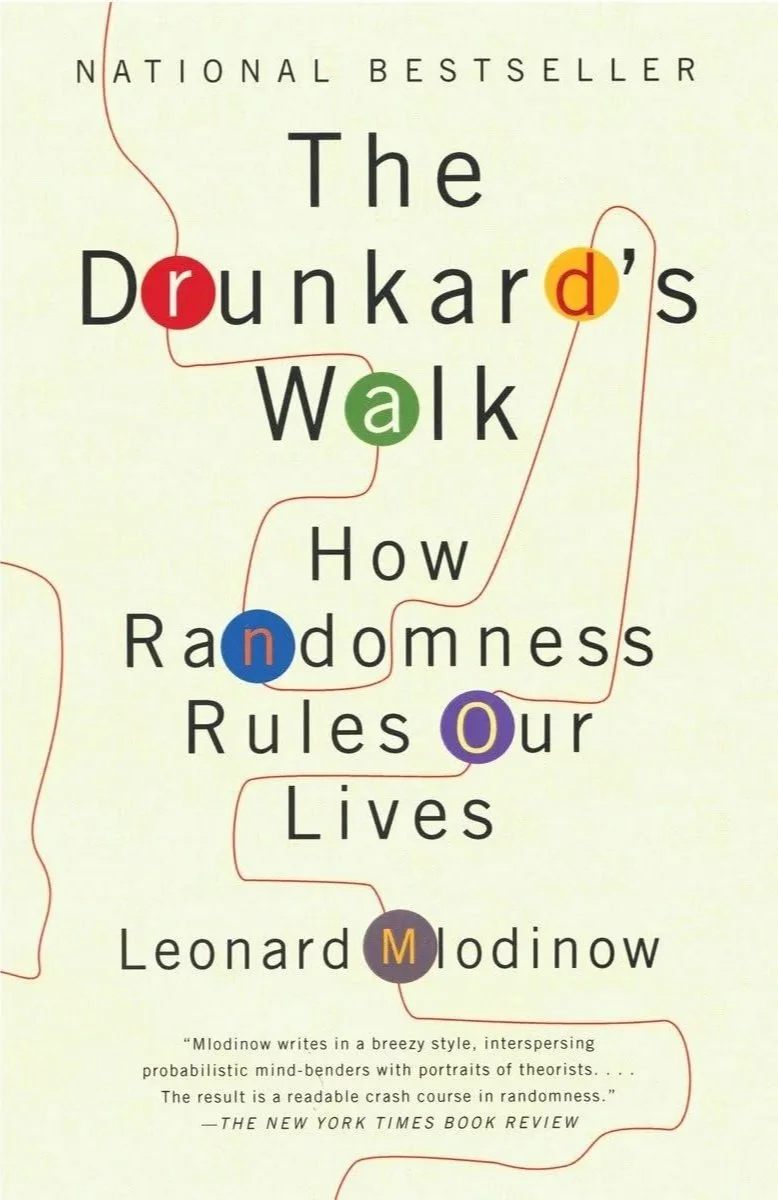The Drunkard’s Walk and the Case for Justice in a Random World
★★★★★ Review by Jeff Geoffray
We live in a culture obsessed with outcomes. Whether it's grades, titles, awards, or social media metrics, our society tends to reward results while dismissing the complex and often invisible forces behind them. The Drunkard’s Walk: How Randomness Rules Our Lives by physicist Leonard Mlodinow offers a bold and refreshing challenge to this mindset.
At the 431 Exchange, where we witness everyday how our adult scholars tackle immense odds to stay on their educational path, Mlodinow’s insights hit especially close to home. His book isn’t just a primer on probability and statistics—it’s a philosophical invitation to rethink what we mean by “success,” and why judging people on a simple tally of wins and losses can be not only misleading but deeply unjust.
“The most important determinant of success isn’t talent or intelligence but the willingness to keep going despite failure.”
Seeing the Patterns That Aren’t There
A working physicist, Mlodinow is a true polymath who has co-authored books with Stephen Hawking and written for Star Trek: The Next Generation. In this bestselling book he takes readers on a sweeping historical journey through the evolution of probability theory. He introduces us to thinkers like Gerolamo Cardano, Jakob Bernoulli, and Pierre-Simon Laplace—people whose discoveries now anchor everything from weather forecasting to AI but who were often ignored, doubted, or even persecuted in their time.
The book stands apart from other popular science titles like Chaos by James Gleick or Outliers by Malcolm Gladwell. While those works profile scientists and social patterns with flair, The Drunkard’s Walk is unique in its ability to connect centuries of intellectual development with intimate, personal stories—including Mlodinow’s own. He writes of his Holocaust-survivor father who credited a random incident at a Nazi concentration camp for narrowly escaping death. His mother, too, escaped Nazi Germany. Mlodinow also writes of his own academic setbacks and near-misses on the way to becoming a successful scientist.
Mlodinow’s core point is clear: much of what we call success or failure is the result of unpredictable forces—statistical noise—that only looks like intention in hindsight. That’s not to say effort doesn’t matter. It does. But randomness plays a far greater role in our lives than we’re comfortable admitting. And if we fail to account for that, we risk reinforcing myths of meritocracy that obscure the truth about opportunity, privilege, and perseverance.
Failure, Resilience, and the Justice of Second Chances
One of the book’s most powerful throughlines is the role of failure. In science, failed experiments aren’t moral verdicts—they’re necessary steps. Mlodinow argues the same is true in life. To deny people the dignity of failure—and the opportunity to try again—is to deny the very nature of progress.
This resonates deeply with our work at the 431 Exchange. Many of our adult scholars have experienced failures that were not their own: underfunded schools, biased gatekeeping, financial hardships and unstable housing. What Mlodinow offers is a language for understanding these challenges not as character flaws, but as statistical realities compounded by randomness and structural inequity.
To succeed, he argues, we must fail. And fail. And fail again—and still rise. As the author says, “successful people in every field are almost universally members of a certain set — the set of people who don't give up." That’s the moral insight at the heart of The Drunkard’s Walk, and it’s one built into the DNA of our scholars at the 431 Exchange and in the alumnae of the Adult Education Center.
Why This Book Belongs on Every Media Literacy Syllabus
In the era of disinformation, deepfakes, and clickbait analysis, The Drunkard’s Walk should be required reading for anyone serious about media literacy. Mlodinow helps us see the patterns we want to see are not necessarily the ones we can trust. Most importantly, he gives us mathematical tools and context to understand and harness randomness for our own advantage. In this way, he is peerless in terms of making abstract mathematical theory understandable and interesting. A string of political victories? A viral video? A few bad test scores? These are not destiny. They are data points floating in a sea of uncertainty.
If we want to build a society that resists the tyranny of outcomes—a world where people are judged by their courage, not just their results—then we must embrace the statistical humility that Mlodinow models with such grace.
If you’ve ever doubted yourself because of a failure—or looked at someone else’s success and felt left behind—The Drunkard’s Walk is your reminder that the journey is not linear, and it's never entirely in our control. That’s not weakness. That’s life. And it's all the more reason to build systems of support that catch us when we fall, and cheer us on when we rise.

